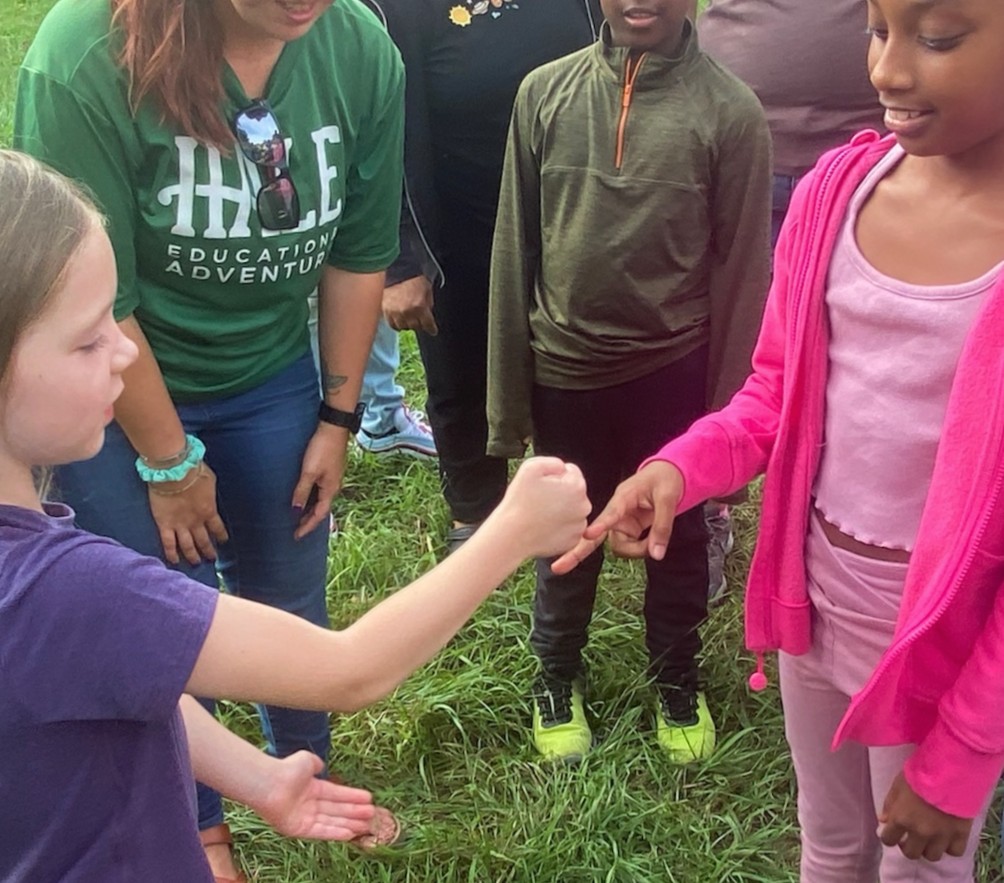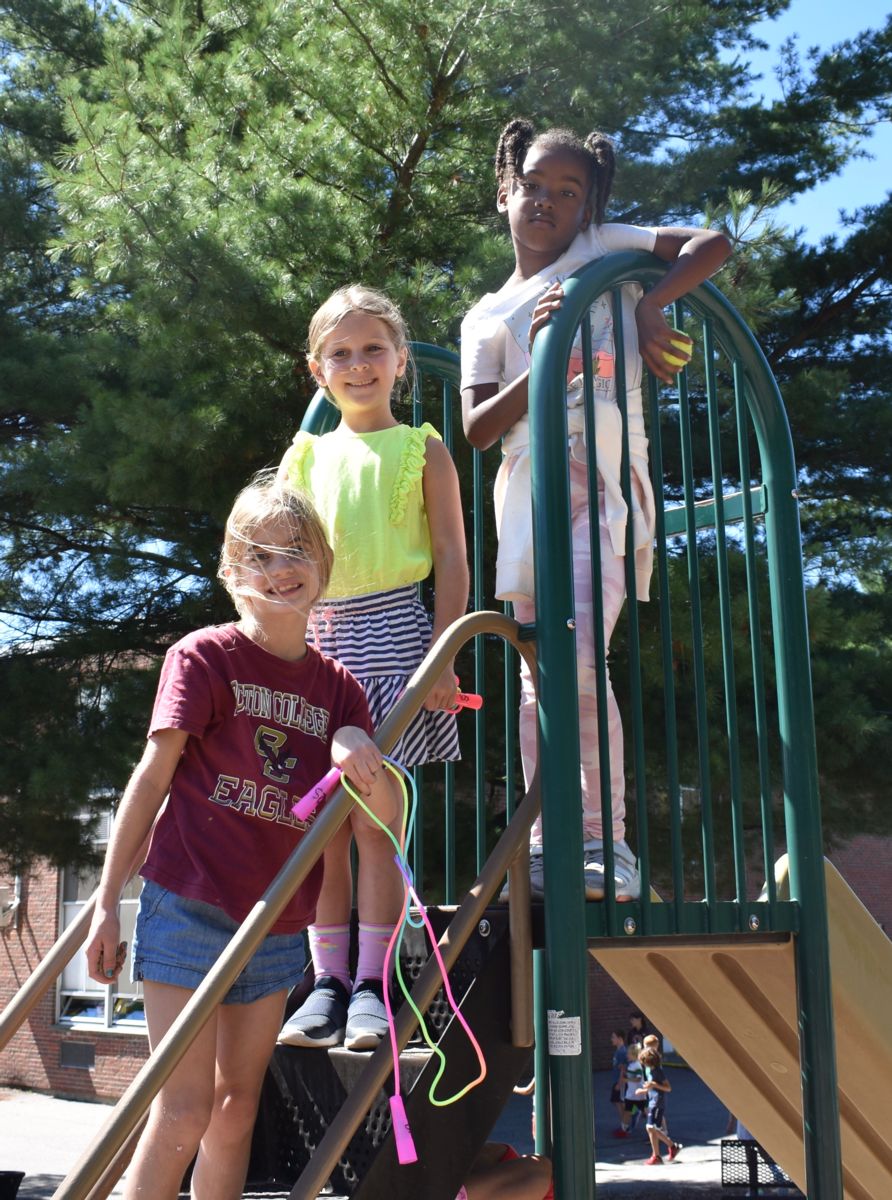 The diversity of our students, their families, and our faculty makes our school district a richer place to learn. In the WPS, we believe that every student who attends school in Westwood deserves to reach their full potential; to build the skills that will allow them to be successful; to ignite their interest in the world; and to feel cared for and a sense of belonging at school. A school system that is committed to equity works to make sure that its practices and policies foster, rather than impede, these outcomes for all students.
The diversity of our students, their families, and our faculty makes our school district a richer place to learn. In the WPS, we believe that every student who attends school in Westwood deserves to reach their full potential; to build the skills that will allow them to be successful; to ignite their interest in the world; and to feel cared for and a sense of belonging at school. A school system that is committed to equity works to make sure that its practices and policies foster, rather than impede, these outcomes for all students.
 At its core, educational equity means fairness or giving every student what they need; it means ensuring that each child’s experience matches what we want for every child’s experience. Since students bring different strengths, experiences, and challenges into our classrooms, an equity focus helps us be thoughtful about providing a range of supports, opportunities, and resources to make sure we don’t leave any student behind.
At its core, educational equity means fairness or giving every student what they need; it means ensuring that each child’s experience matches what we want for every child’s experience. Since students bring different strengths, experiences, and challenges into our classrooms, an equity focus helps us be thoughtful about providing a range of supports, opportunities, and resources to make sure we don’t leave any student behind.
Equity is related to equality, but isn’t the same. Equality is treating everyone in the same way, and there are times when that is an important goal. For example, all students are afforded the same due process rights in our disciplinary procedures. Equity, however, focuses on outcomes. In schools, where students’ needs are diverse, treating students exactly the same way works for some students and not for others. In schools, we adjust practices and strategies with the aim of achieving rigorous outcomes for all students so that all of our graduates are prepared for college, career, and civic life.
.png)
Schools that are committed to equity examine data to assess the degree to which they are achieving equitable outcomes. Like many schools, in the WPS, our assessment data, such as our MCAS scores, advanced coursework enrollment statistics, and student survey results, reveal differences in students' performance, their experience of the schools’ climate and culture, and their social-emotional well-being. When examined by race, income, special education status, and gender, differences in data across different groups of students is called disproportionality. Schools that are pursuing equity seek to eliminate disproportionality. When we identify areas of disproportionality, it suggests that there is more work to do to ensure an equitable experience and outcomes for all students.
Our Core Values
In the Westwood Public Schools, we have three articulated core values. Each of those values can be explored from the perspective of equity:
| Academic Excellence and a Commitment to Improvement |
We value academic excellence in the WPS and we have high expectations for all children. It is our mission to help kids acquire the knowledge and skills that they will need to do whatever they want to do in the world and pursue their dreams after they graduate. We want to make sure we serve the diversity of students who are in our schools to master important learning standards. Whatever a student’s race or ethnicity; if their family has been here for generations or are newly arrived; whether their families are experiencing income instability or are homeless; if students differ cognitively, physically, or behaviorally from their peers; when a student is LGBTQ+—we want all students in the WPS to not just survive, but thrive. |
| Curiosity and Tenacity |
We want kids to have a sense of curiosity and wonder about math and nature and history and literature. We also want to develop in kids a desire to learn more about themselves and one another, their families, their communities and the world. We want our graduates to be prepared to approach each other’s perspectives with genuine curiosity, so that they can tackle complex problems, take risks, and make contributions, not just to their current community but to their future communities, which may be different than Westwood. |
| Respectful, Caring Relationships |
Our efforts to make sure that our schools are inclusive and integrated are rooted in the idea that when we learn, work, and play alongside each other, when we get to know each other, we break down stereotypes. With respectful and caring relationships, we can have a learning environment where kids can ask questions or be unsure, where students and adults can make mistakes, and where we help each other navigate difficult conversations. |






 The diversity of our students, their families, and our faculty makes our school district a richer place to learn. In the WPS, we believe that every student who attends school in Westwood deserves to reach their full potential; to build the skills that will allow them to be successful; to ignite their interest in the world; and to feel cared for and a sense of belonging at school. A school system that is committed to equity works to make sure that its practices and policies foster, rather than impede, these outcomes for all students.
The diversity of our students, their families, and our faculty makes our school district a richer place to learn. In the WPS, we believe that every student who attends school in Westwood deserves to reach their full potential; to build the skills that will allow them to be successful; to ignite their interest in the world; and to feel cared for and a sense of belonging at school. A school system that is committed to equity works to make sure that its practices and policies foster, rather than impede, these outcomes for all students.  At its core, educational equity means fairness or giving every student what they need; it means ensuring that each child’s experience matches what we want for every child’s experience. Since students bring different strengths, experiences, and challenges into our classrooms, an equity focus helps us be thoughtful about providing a range of supports, opportunities, and resources to make sure we don’t leave any student behind.
At its core, educational equity means fairness or giving every student what they need; it means ensuring that each child’s experience matches what we want for every child’s experience. Since students bring different strengths, experiences, and challenges into our classrooms, an equity focus helps us be thoughtful about providing a range of supports, opportunities, and resources to make sure we don’t leave any student behind..png)

